Coronavirus: UK to remain in 'containment' phase of response
- Published
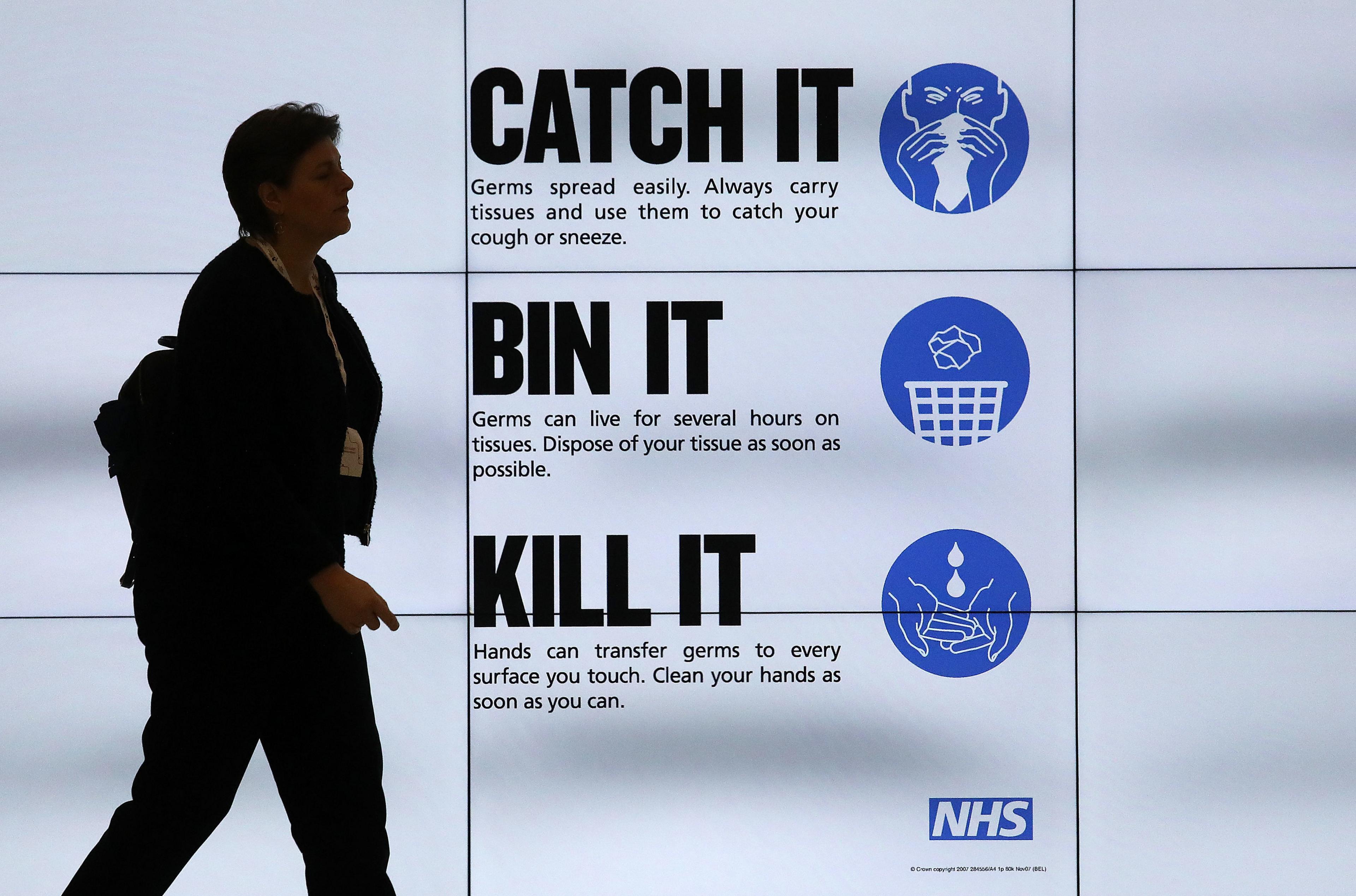
The UK will remain in the "containment" stage of its response to the coronavirus following an emergency Cobra meeting.
It comes as the country's chief medical adviser confirmed a fourth person had died from the virus in the UK.
There were 319 confirmed cases in the UK as of 09:00 GMT, external on Monday, a rise of 46 since the same time on Sunday.
However, measures to delay the virus' spread with "social distancing" will not be introduced yet, ministers said.
Number 10 said it accepted that the virus "is going to spread in a significant way", however.
The latest person to die from the virus was in their 70s and had underlying health conditions, according to the UK government's chief medical adviser Prof Chris Whitty.
He said the patient, who was being treated at a hospital in Wolverhampton, appeared to have contracted the virus in the UK and that officials were tracing people they had been in contact with.
Following the Cobra meeting, Downing Street said the prime minister "will be guided by the best scientific advice" but there was no need to cancel sporting events at this stage.
Ministers have also been meeting with sports bodies to discuss their response to the outbreak, which could include staging matches behind closed doors.
It comes as Ireland's Six Nations rugby match in France on Saturday has been postponed, following an earlier decision to postpone England's match in Italy. However, Wales's game against Scotland in Cardiff is to go ahead as scheduled.
Another two cases of the Covid-19 coronavirus were confirmed in Wales and another five in Scotland on Monday.

EASY STEPS: How to keep safe
A SIMPLE GUIDE: What are the symptoms?
GETTING READY: How prepared is the UK?
MAPS AND CHARTS: Visual guide to the outbreak

Health Secretary Matt Hancock told MPs the government has enlisted an extra 700 people to support a growing number of enquiries to NHS 111, which he added is now dealing with more online enquiries than telephone calls.
Mr Hancock added that a bill to help tackle the outbreak would be "temporary and proportionate".
The UK's top share index, the FTSE 100, is facing its worst day since the financial crisis after it fell by more than 8%, wiping billions off the value of major firms.
The Bank of England has said it will take all necessary steps to protect financial and monetary stability, according to a spokesman for the prime minister.
The UK is currently in the first phase - "containment" - of the government's four-part plan, external to tackle the spread of coronavirus.
The government has previously said "social distancing" measures to slow the spread of the virus could include a ban on sporting events and other large gatherings, and encouraging people to work from home rather than use crowded trains and buses.
Such a step would require agreement from Prof Whitty and chief scientific adviser Sir Patrick Vallance.
Universal credit claimants who have to self-isolate will not be sanctioned, a work and pensions minister has confirmed.
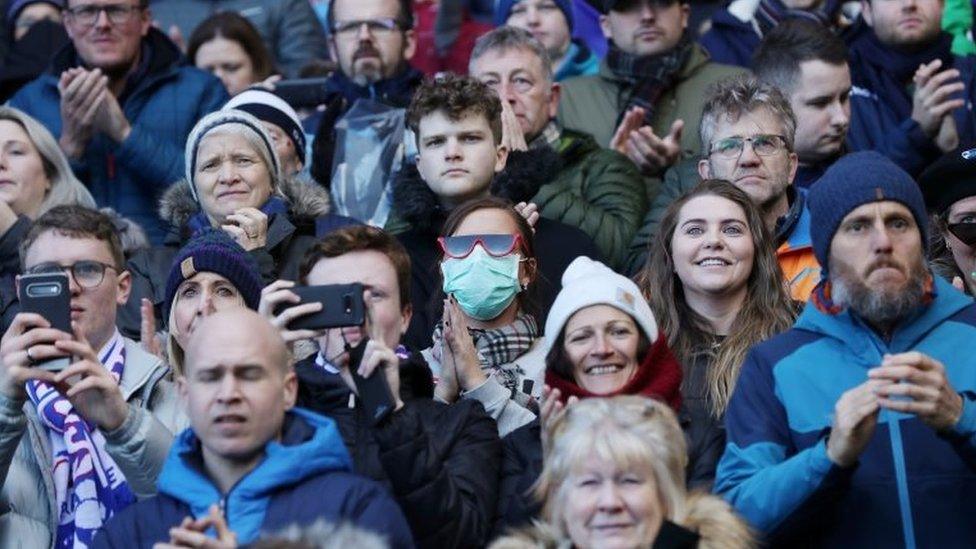
There is no reason to cancel large events at the moment, ministers say
A European Union expert said the UK had only a "few days" to implement measures to prevent an outbreak like Italy's, which is the worst outside China with 7,375 confirmed cases and 366 deaths.
Environment Secretary George Eustice will also discuss contingency plans with supermarket chief executives, including proposals on how to support vulnerable groups who may have to self-isolate.
As supermarkets restrict sales of some products to halt panic-buying, a survey suggested one in 10 shoppers are stockpiling.
Both the government and retailers say stockpiling is unnecessary, and Mr Hancock said food supplies would continue even in the "reasonable worst-case" scenario.
Shadow chancellor John McDonnell accused the government of offering only "vague statements" in response to the outbreak, saying it needed to guarantee sick pay for all workers and address issues such as a shortage of 100,000 NHS staff.
Flights cancelled
The Foreign Office has warned Britons to avoid large parts of northern Italy under a coronavirus quarantine, unless their journey is essential.
Those travelling from locked-down areas have also been advised to self-isolate if they returned to the UK in the last 14 days - even if they have shown no symptoms.
Travellers from the rest of Italy are only told to self-isolate and call 111 if they have a cough, fever or shortness of breath.
British nationals are still able to depart Italy without restriction, but some airlines - including easyJet and British Airways - have cancelled several flights to and from affected areas.
Oliver Dowden, the culture secretary, told BBC Radio 5 Live "enhanced measures" were in place to screen passengers from Italy - but the only one he identified was training airline staff to spot the symptoms of Covid-19.
Allow X content?
This article contains content provided by X. We ask for your permission before anything is loaded, as they may be using cookies and other technologies. You may want to read X’s cookie policy, external and privacy policy, external before accepting. To view this content choose ‘accept and continue’.

Public Health England said passengers on flights from northern Italy are also issued with information about symptoms and necessary actions to take, which will be extended to all flights from Italy by Wednesday.
However, the Unite union, which represents many cabin crew, said "there has been no training" for its members working on flights from northern Italy.
The Foreign Office said it was "working intensively" to arrange a flight home for 142 Britons on board the Grand Princess cruise ship, which is due to dock in California on Monday after spending five days stranded off the coast because of 21 cases among crew and passengers.
Neil Hanlon, from Bridgwater in Somerset, told BBC Breakfast that food on board has become "very limited" and he was "gutted" that it may take until later in the week until he and his wife Victoria can fly home.
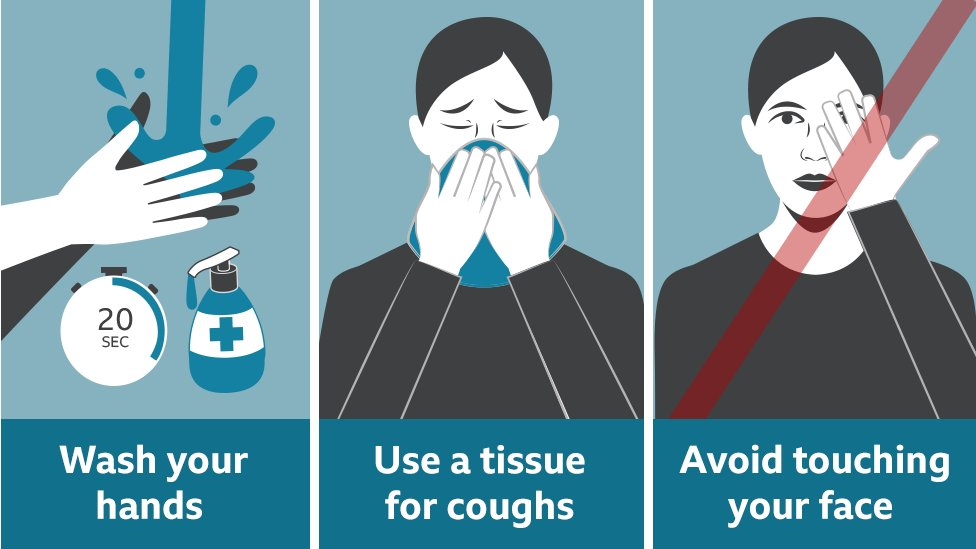
Amid concerns that fake news about the coronavirus is causing confusion, a specialist unit to combat disinformation has been set up.
Teams from across Whitehall have been brought together to identify and respond to disinformation in a bid to limit its spread.
In other developments:
Transport for London said a member of staff, believed to work at its traffic control centre in Southwark, had tested positive for Covid-19 and a deep clean of the office had taken place
The Royal College of Physicians has postponed its conference in April, as a precaution to protect NHS staff
Guernsey has the first confirmed case of the coronavirus in the Channel Islands, after a patient returning from Tenerife displayed symptoms
Health Protection Scotland has issued new guidance to prevent the spread of the virus, including recommending that phones are cleaned routinely
Steps the NHS says you should take to protect yourself from Covid-19

Have you or anyone else you know been affected by the coronavirus? You can tell us your story by emailing haveyoursay@bbc.co.uk, external.
Please include a contact number if you are willing to speak to a BBC journalist. You can also contact us in the following ways:
WhatsApp: +44 7756 165803, external
Tweet: @BBC_HaveYourSay, external
Send pictures/video to yourpics@bbc.co.uk, external
Please read our terms of use and privacy policy
- Published8 March 2020
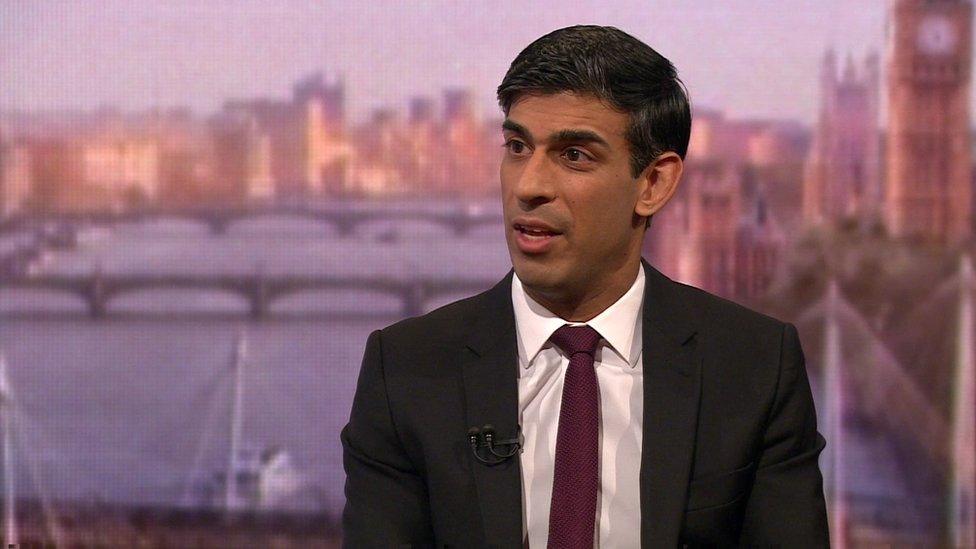
- Published8 March 2020
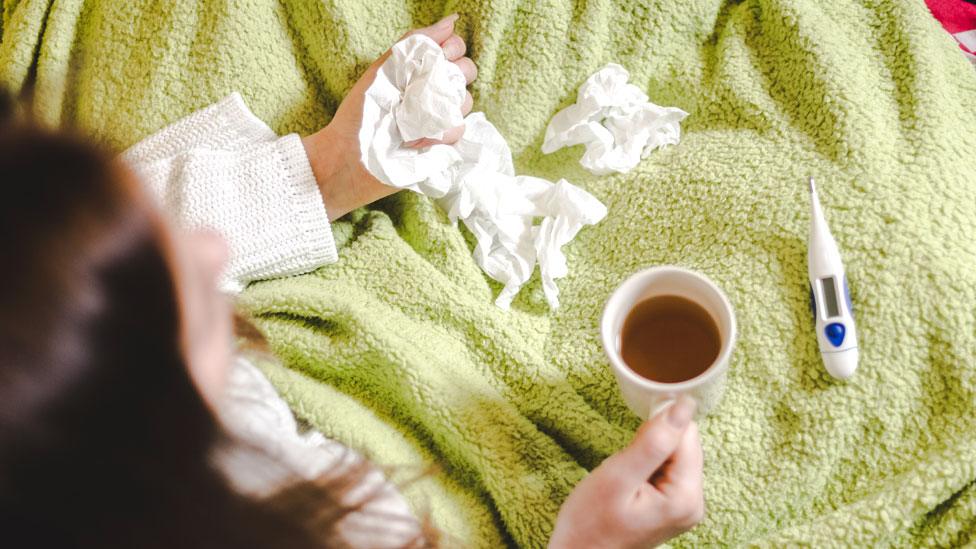
- Published7 March 2020
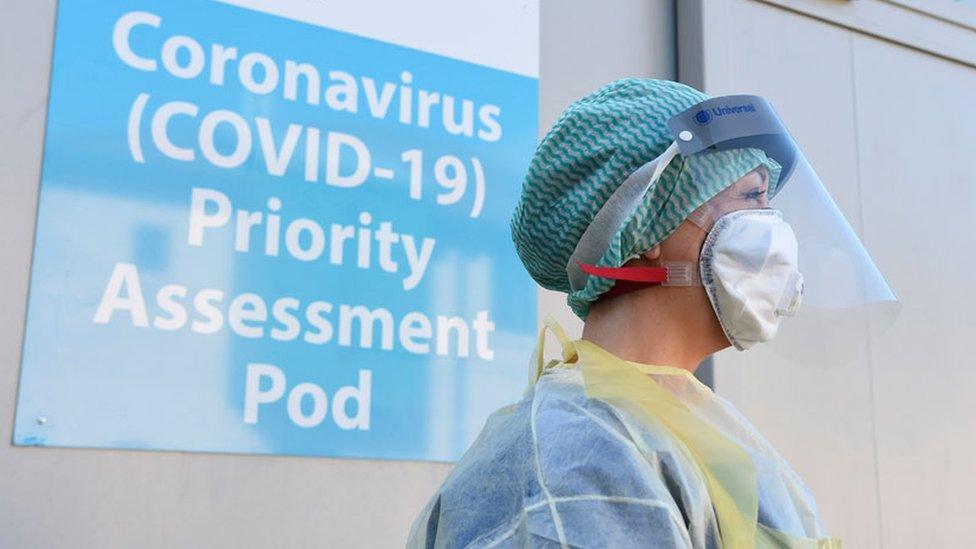
- Published7 March 2020
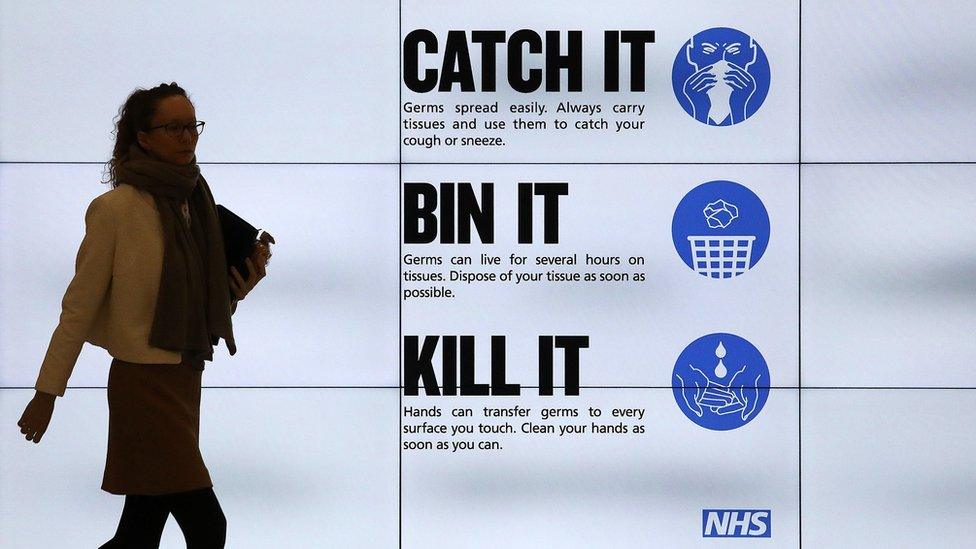
- Published7 March 2020
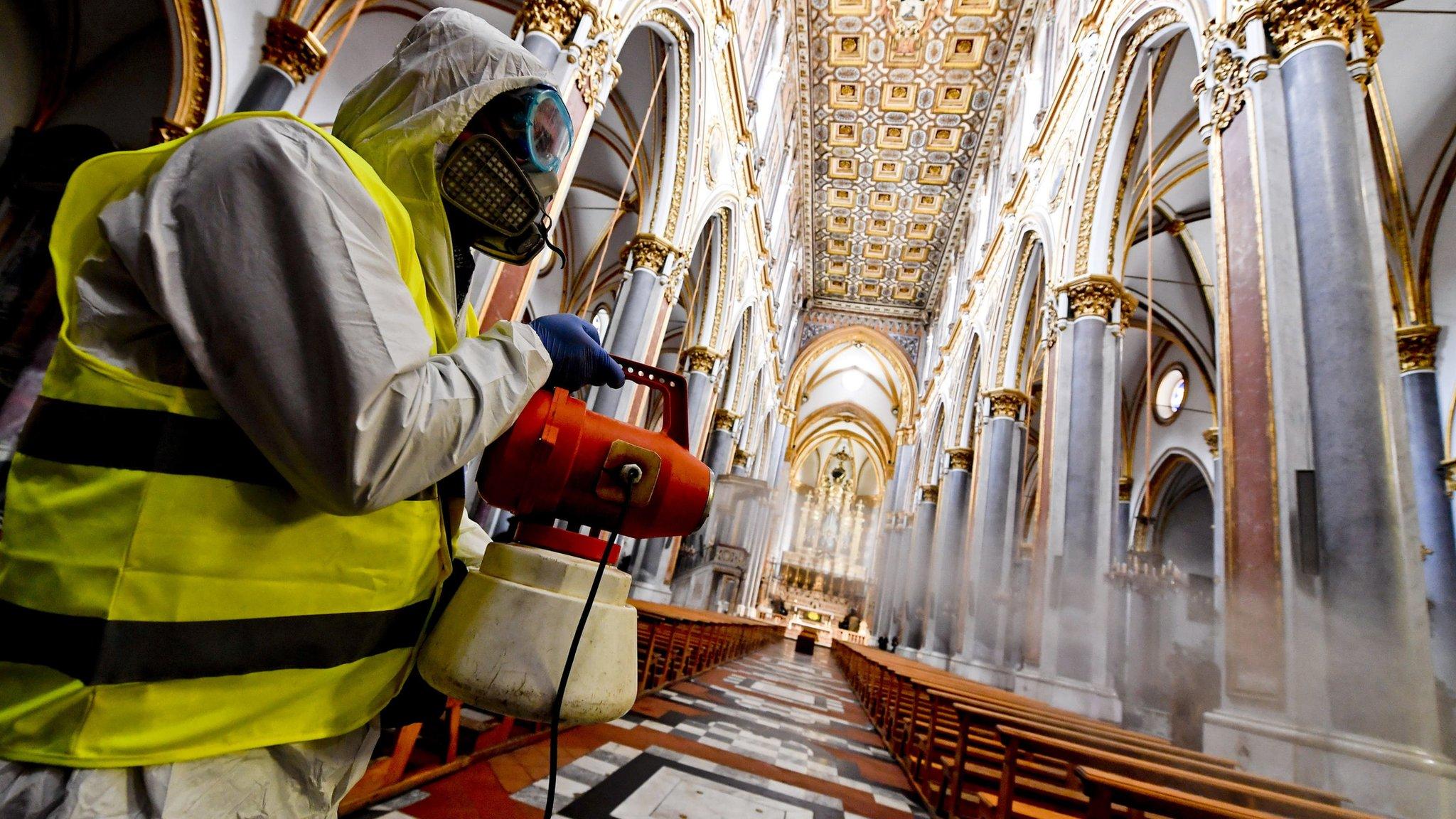
- Published6 October 2021

- Published5 July 2023
